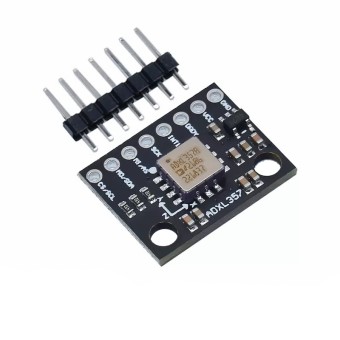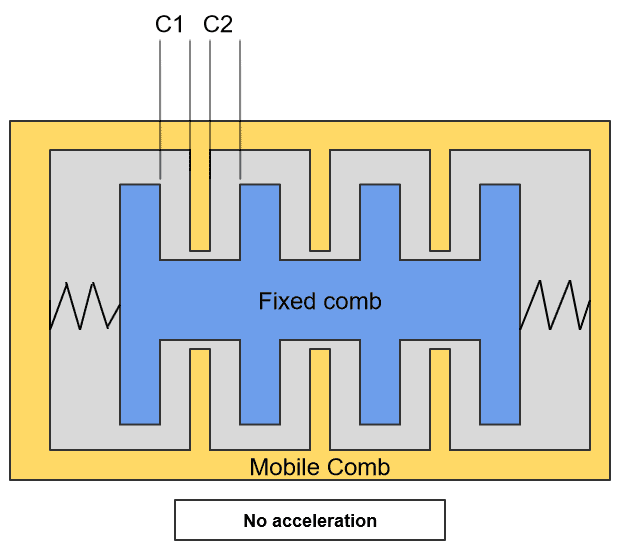Accelerometer Modules typically contain microelectromechanical systems (MEMS) accelerometers that utilize the principles of capacitance or piezoelectricity to measure acceleration. Changes in acceleration cause the sensor's internal mass to move, generating electrical signals that are converted into acceleration data.
Accelerometer
Accelerometer Sensor Modules
An accelerometer module is a device designed to measure acceleration in various directions. These modules are crucial components in motion-sensing applications, inertial navigation systems, and projects requiring the detection of changes in velocity.
Price of Accelerometer Modules:
The price of accelerometer modules varies based on factors such as brand, accuracy, and additional features. Basic models like the MPU6050 are cost-effective, while modules with multiple sensors may have a higher price.
Tips for Buying Accelerometer Modules:
Consider factors like the number of axes, communication interface (SPI/I2C), and additional sensors integrated into the module (e.g., gyroscope, magnetometer). Choose an accelerometer module that aligns with your project's requirements for accurate motion sensing.
Popular Models of Accelerometer Modules:
How does an Accelerometer Module work?
In what applications can Accelerometer Modules be used?
Accelerometer Modules have diverse applications, ranging from mobile devices for screen orientation and gaming to industrial uses like vibration monitoring in machinery, impact detection in automotive systems, and inertial navigation systems.
Are Accelerometer Modules capable of measuring static acceleration?
Yes, Accelerometer Modules can measure both static and dynamic accelerations. They are sensitive to changes in position, making them suitable for applications where the detection of static forces or tilting is required.
What are the different types of acceleration measured by Accelerometer Modules?
Accelerometer Modules typically measure acceleration in three axes: X, Y, and Z. They provide data about linear acceleration along these axes, allowing for comprehensive motion analysis.
Can Accelerometer Modules detect tilt and orientation changes?
Yes, Accelerometer Modules are capable of detecting tilt and orientation changes. They provide information about the device's spatial positioning, making them essential for applications such as screen rotation in smartphones or detecting tilting in gaming controllers.
How accurate are Accelerometer Modules in measuring acceleration?
The accuracy of Accelerometer Modules depends on factors such as sensor quality, calibration, and the specific application. High-quality modules with advanced calibration algorithms can provide precise acceleration data.
Can Accelerometer Modules be used with microcontrollers like Arduino?
Yes, many Accelerometer Modules are compatible with microcontrollers like Arduino. They often communicate through digital interfaces like I2C or SPI, enabling easy integration into electronic projects and IoT applications.
Are there considerations for filtering noise in Accelerometer Module data?
Filtering noise is crucial for obtaining accurate acceleration data. Some Accelerometer Modules feature built-in filters, and additional software filtering may be applied during data processing to enhance signal quality.





Please complete your information below to login.
Sign In
Create New Account